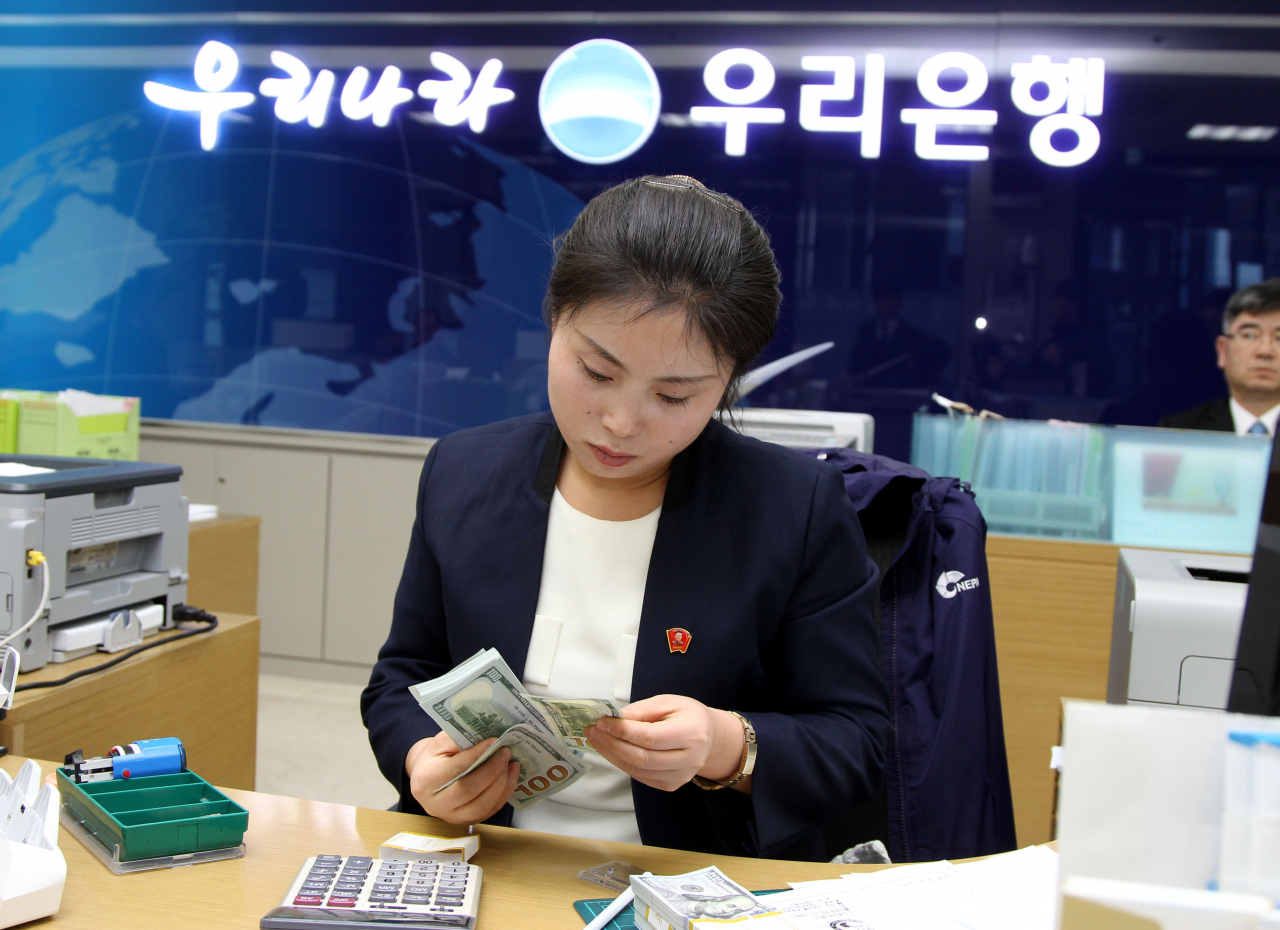[KH Explains] Why do Woori, NongHyup hold on to North Korean operations?
Despite soured inter-Korean relationship, South Korean banks see potential benefits of maintaining business licenses with minimal costs
By Song Seung-hyunPublished : Nov. 7, 2023 - 12:05

In the basement of its Seoul headquarters, South Korean lender Woori Bank has been running a small office that temporarily replaces its branch in North Korea since it pulled out of the North in 2016.
In an office a little over 30 square meters in size, a lone manager handles occasional visits from businesspeople who own factories at the now-shuttered Kaesong Industrial Complex, a symbol of inter-Korean business engagement in the North Korean border city of Kaesong.
While inter-Korean relations remain stagnant, Woori Bank and NH NongHyup Bank continue to hold onto their licenses to operate branches in North Korea in different forms.
These lenders explained that the low cost of maintaining the licenses and the potential benefits they offer meant it made sense to keep them.
"If we give up this license once, it may be difficult to obtain it again," a Woori Bank official said. Since the inter-Korea relationship situation can change at any time, he added that the bank does not have plans to close the temporary replacement branch.
“Also, the cost of maintaining the temporary branch is not considered significant," he added.
Closing procedures would not be easy. “There is a special law related to the Kaesong Industrial Complex, and if we were to shut down the branch, it could be very cumbersome,” he said.
Some CEOs of companies at the Kaesong Industrial Complex, which used to channel wages to North Korean workers via Woori Bank's branch, still maintain their accounts in anticipation of resuming their operations in the future.
Back in September 2004, Woori Bank secured a license to establish a branch in the inter-Korean manufacturing zone by prevailing over other bidders like KB Kookmin Bank, Industrial Bank of Korea, Shinhan Bank and Hana Bank.
"We applied for the license from the South Korean government, received approval and then the Unification Ministry submitted the application to the North Korean government and obtained the final license,” the official said.
The Woori Bank official also noted that this procedure was quite intricate.
According to industry insiders, when the government assessed the licensing process, it took into account the combined previous experience of Sangup Bank and Hanil Bank -- which had merged in 1999 to form what eventually became Woori Bank -- operating a combined total of 51 branches in North Korea.
The Kaesong Industrial Complex branch not only housed the branch manager and deputy branch manager but also had three South Korean employees and four local employees working together there.
Woori Bank also offered special loans to companies at the Kaesong Industrial Complex, using its license to use buildings and land at the complex as collateral for these loans.
However, when the Kaesong Industrial Complex was abruptly closed due to the aftermath of North Korea's fourth nuclear test in February 2016, the branch was shut down, and it started operating as a temporary replacement branch in Seoul.
As for NH NongHyup Bank, it does not have a temporary replacement branch like Woori Bank, but it has the right to open a branch near North Korea's Mount Kumgang.
The bank also maintains its license in the hopes that the suspended Mount Kumgang tours could resume if any progress is made in inter-Korean relations, which are currently at a low point.
Unlike Woori, which operates a physical office, NongHyup keeps a designated fund to maintain the North Korean branch.
"We are allocating the minimum amount for the branch's fund," said an NH NongHyup Bank official.
NH NongHyup Bank reported that it reduced its operating fund for the Mount Kumgang branch to just one dollar in December last year.
In November 2005, Hyundai Asan, the inter-Korean business unit of South Korean conglomerate Hyundai Group, selected NongHyup as the operator of the only South Korean bank branch at Mount Kumgang, and in May the following year, the Ministry of Unification approved and granted the license.
The bank’s Mount Kumgang branch began its currency exchange business targeting Mount Kumgang tourists in a two-story building in North Korea in October 2006.
The branch operated without a break, 12 hours a day, throughout the year with two South Korean employees.
However, in July 2008, tour programs were completely suspended following a South Korean tourist's death. Tourist Park Wang-ja was shot and killed at the Kumgang resort while traveling there in July 2008.
Park's death also led to the immediate suspension of the NongHyup branch.
In the meantime, the state-run Export-Import Bank of Korea has earmarked 870 billion won ($666 million) for its inter-Korean cooperation fund for next year, down almost 30 percent from this year. But the bank says there have been no changes in related operations.
“We will continue to secure essential human resources and maintain the organization in preparation for the future,” said its CEO Yoon Hee-sung during a parliamentary audit in September.



















![[Today’s K-pop] Treasure to publish magazine for debut anniversary](http://res.heraldm.com/phpwas/restmb_idxmake.php?idx=642&simg=/content/image/2024/07/26/20240726050551_0.jpg&u=)